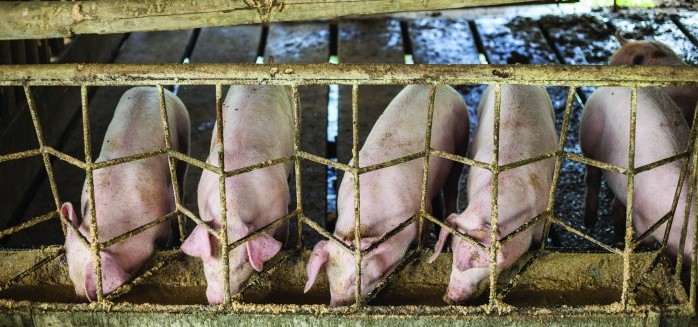China will subsidise large farms from its central budget to help rebuild its pork production base, after the destruction caused by African swine fever.
One-off subsidies will be handed out to newly built or rebuilt pig farms, as well as some relocation projects before the end of 2020, according to plans jointly released by the National Development and Reform Commission and the Ministry of Agriculture and Rural Affairs, Chinese news outlet Xinhuanet reports.
The report suggests the funds will be used to support the construction of facilities that prioritise disease prevention and automatic feed plants.
ASF had already wiped out a third of the Chinese pig herd. In its latest global ASF assessment, Rabobank estimates the herd loss will reach 50% by the end of the year, although it believes this will equate to a 2019 productivity drop of 25% in 2019 due to the number of herds being liquidated. A further 10-15% drop in production is forecast in 2020.
Pig prices have reached record levels, with the average price that wholesalers pay suppliers up 90% year-on-year in the last week of August, according to government data.
CNN reports that the authorities have pledged to release the government’s emergency reserves of frozen pig meat if necessary. Ministry of Commerce spokesman Gao Feng said the agency will ‘closely monitor market developments’ before it makes such a decision.
Perhaps not entirely surprisingly, farmers aren’t restocking their live pigs after AS-infected animals die, according to China’s agricultural ministry.
That has prompted Chinese authorities to explore ways to encourage farmers and producers to breed more pigs. CNN reports that the finance and agricultural ministries have asked local governments to free up money that could be used for artificial insemination technology, as well as plans expedite the distribution of subsidies to farms where pigs have been culled because of ASF. The Beijing government plans to increase subsidies, loan support and insurance coverage for pig producers nationwide.
The new efforts to tackle the crisis spurred optimism among pork investors last week. WH Group world’s largest pork processor, saw its stock surge 7.9% in Hong Kong. Shares in China Yurun Food Group and COFCO Meat Holdings climbed 3.2% and 3%, respectively, according to the CNN report.
The situation in China is likely to feed through to continued high export volumes from Europe, supporting higher prices.
Chinese pork imports increased by 12% in the first half of 2019, with Spain the biggest beneficiary, followed by Germany and Canada, while beef imports were up 50%.
Rabobank forecasts that exports to China will top 3,000 tonnes in 2019 and 4,000t in 2020, compared with just over 2,000t in 2018. However, it predicts that the EU’s ‘cautious’ production response and relatively high prices will limit the volumes it exports to China.
There has an early summer dip in EU export growth to China. But AHDB analyst Felicity Rusk said: “With Chinese pork prices now on a sharp upwards trajectory, it is likely that import demand will strengthen again, especially with the period of peak demand approaching.”




